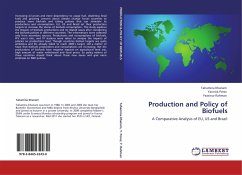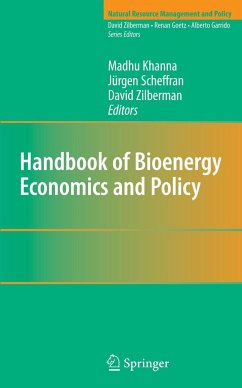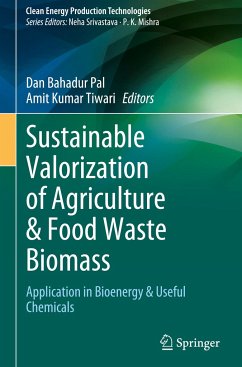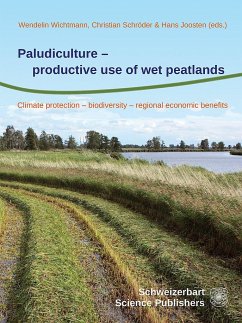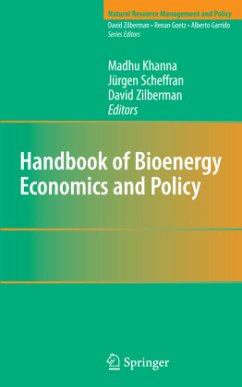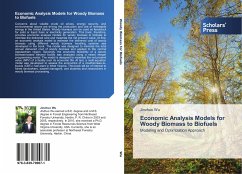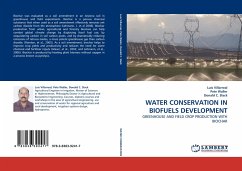
WATER CONSERVATION IN BIOFUELS DEVELOPMENT
GREENHOUSE AND FIELD CROP PRODUCTION WITH BIOCHAR
Versandkostenfrei!
Versandfertig in 6-10 Tagen
52,99 €
inkl. MwSt.

PAYBACK Punkte
26 °P sammeln!
Biochar was evaluated as a soil amendment in an Arizona soil in greenhouse and field experiments. Biochar is a porous charcoal substance that when used as a soil amendment effectively removes net carbon dioxide from the atmosphere (Lehmann, J. et al 2006). Biochar production from urban, agricultural and forestry biomass can help combat global climate change by displacing fossil fuel use, by sequestering carbon in soil carbon pools, and by dramatically reducing emissions of nitrous oxides, a more potent greenhouse gas than carbon dioxide. (Rondon, et al., 2005). As a soil amendment, biochar hel...
Biochar was evaluated as a soil amendment in an Arizona soil in greenhouse and field experiments. Biochar is a porous charcoal substance that when used as a soil amendment effectively removes net carbon dioxide from the atmosphere (Lehmann, J. et al 2006). Biochar production from urban, agricultural and forestry biomass can help combat global climate change by displacing fossil fuel use, by sequestering carbon in soil carbon pools, and by dramatically reducing emissions of nitrous oxides, a more potent greenhouse gas than carbon dioxide. (Rondon, et al., 2005). As a soil amendment, biochar helps to improve crop yields and productivity and reduces the need for some chemical and fertilizer inputs (Glaser, et al., 2002; and Lehmann, et al., 2006). Biochar is produced by heating plant biomass without oxygen in a process known as pyrolysis.




